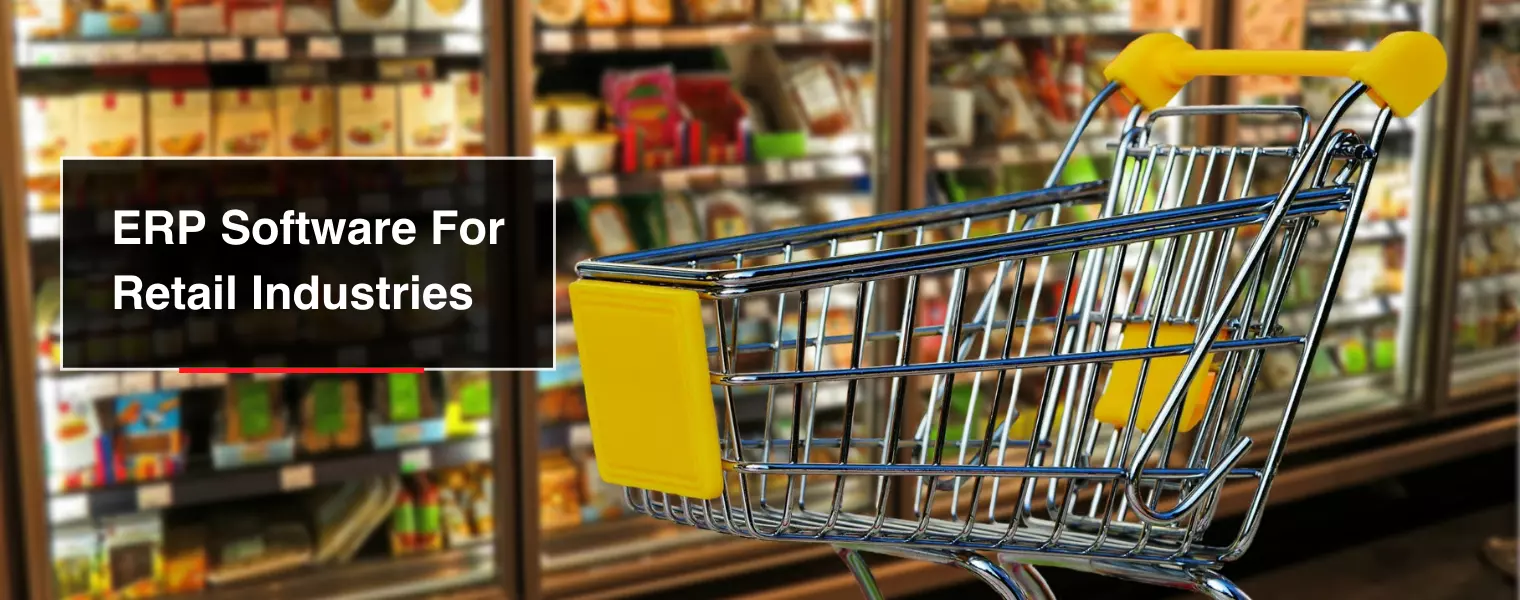
ERP, short for "Enterprise Resource Planning," is a software suite that integrates various pieces of software used in a business. Originally developed for manufacturing, ERP has now become crucial for managing retail businesses.
The software components in ERP, typically seen as separate, are combined to ensure smooth and accurate data flow across the business. This enables store employees and decision-makers at the head office to access necessary information and tools for efficient operations.
Initially designed for manufacturing challenges, ERP's versatility allows it to cater to various industries and business requirements. In retail, ERP systems are highly beneficial for tasks like inventory tracking, purchasing, and maintaining storage levels.
The integration of different software components in ERP facilitates quick and accurate data transfer throughout the retail process. This empowers decision-makers to make informed choices for optimal outcomes in each situation.
Exploring how retail ERP can enhance day-to-day operations helps in understanding how ERP can be tailored to meet specific business needs effectively.
In the retail sector, customers are increasingly switching to competitors due to rising expectations. To retain customers, retail companies must prioritize customer needs and deliver exceptional overall experiences.
1. The current retail landscape is designed to enable retailers to promptly and directly address customer needs, whether it's through social media channels or automated notifications for package deliveries.
2. ERP software plays a crucial role in providing a comprehensive and integrated approach to managing a retail business, offering executives a strategic overview of their operations. Real- time data transfer and centralized functionality are made possible through ERP systems.
3. Without Retail ERP software in place, retailers may encounter challenges such as inconsistent interfaces, disconnected pricing systems, and ineffective KPI management across different channels.
4. Retail ERP solutions are designed to streamline various aspects of a company's operations, including customer relationship management, financial management, and inventory control. The list below highlights key business areas and the corresponding ERP functionalities that support them.
It is important to understand the fundamental features of ERP software for retail.
It's important to consolidate this key function to ensure a cohesive understanding of customer requirements and prevent data fragmentation.
MRM supports marketing operations by ensuring a harmonious blend of technology, team collaboration, and creative/strategic processes.
Efficiently handle sales orders from start to finish with this feature, covering order creation, task assignment, task completion, and invoicing/billing.
With the CRM module, users can easily access customer information across various products, locations, accounts, and statuses.
This module consolidates all your essential warehouse operations, enabling you to monitor important details such as inventory levels, product history, and various product specifications.
In the retail sector, having a reliable and efficient shipping process is essential for keeping customers happy. A solid system can automatically handle any mistakes, like late deliveries or wrong items, to ensure smooth operations.
A strong and dependable shipping process is crucial for customer satisfaction in the retail industry. A good system can automatically handle errors such as late deliveries or incorrect packages, ensuring a seamless experience for customers.
This system can handle and oversee all of an organization's budget planning activities. Budgets are managed from three different viewpoints, depending on the user's role: accountant, project manager, or department manager.
This tool gives a snapshot of how the company is utilizing its financial assets and its general financial well-being.
Protects businesses from both internal and external theft and fraud.
A system that offers comprehensive logistics and data, delivered right after collection. This allows you to anticipate demand and manage your store inventory effectively.
Manages the different stages of distribution, including customer support, inventory monitoring, ordering, and procurement. The system provides real-time profitability calculations by warehouse, product line, location, and business unit.
The purchase order feature equips you with the necessary tools to maintain stable stock levels, enhance product quality, and reduce expenses in the procurement department. It helps address issues like delayed invoices, consolidated shipments, and partial deliveries.
No matter if the customer is browsing on your mobile site or visiting a brick-and-mortar store, they should have a smooth experience across all platforms.
An advanced tool that enables you to predict customer demand by analyzing past data, offering valuable insights into customer preferences for a tailored experience.
A sophisticated tool that not only provides personalized product recommendations to customers but also analyzes their browsing behavior to enhance marketing tactics.
Efficiently manage customer orders across all channels with end-to-end software solutions. Gain visibility into current inventory to fulfill orders from any point in the supply chain.
In conclusion, ERP software is vital for modern retail businesses, integrating various functions to streamline operations and improve efficiency. DoFort's Retail ERP solutions offer comprehensive tools for managing inventory, customer relationships, sales orders, and financials, ensuring a seamless experience for both customers and employees. By leveraging these advanced features, retailers can meet rising customer expectations, enhance overall performance, and maintain a competitive edge. Investing in tailored ERP software like DoFort’s enables retailers to optimize their processes, boost profitability, and deliver exceptional customer experiences, driving long-term success in the rapidly evolving retail landscape. Get in touch with us for more information.
Welcome to DoFort !